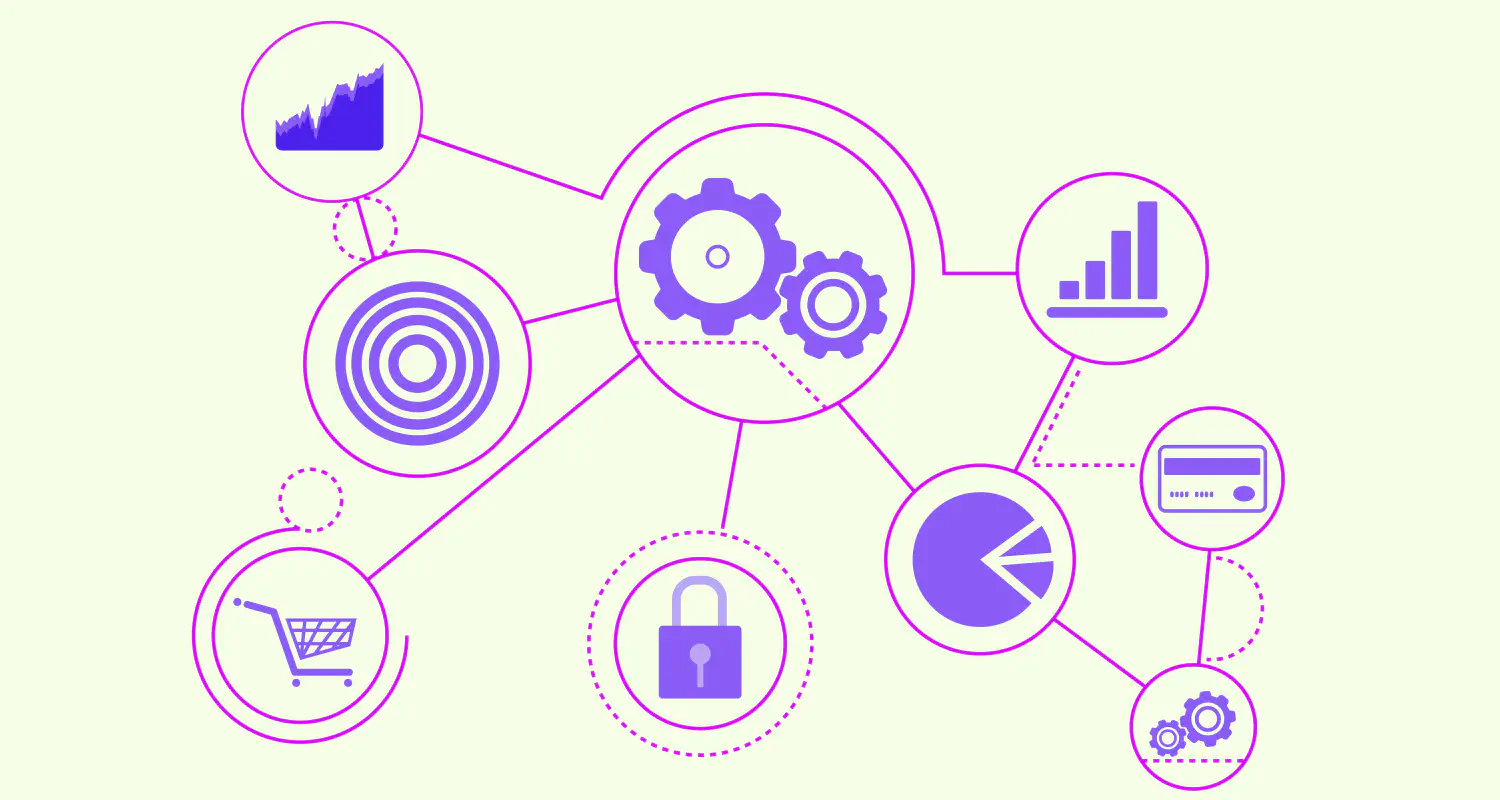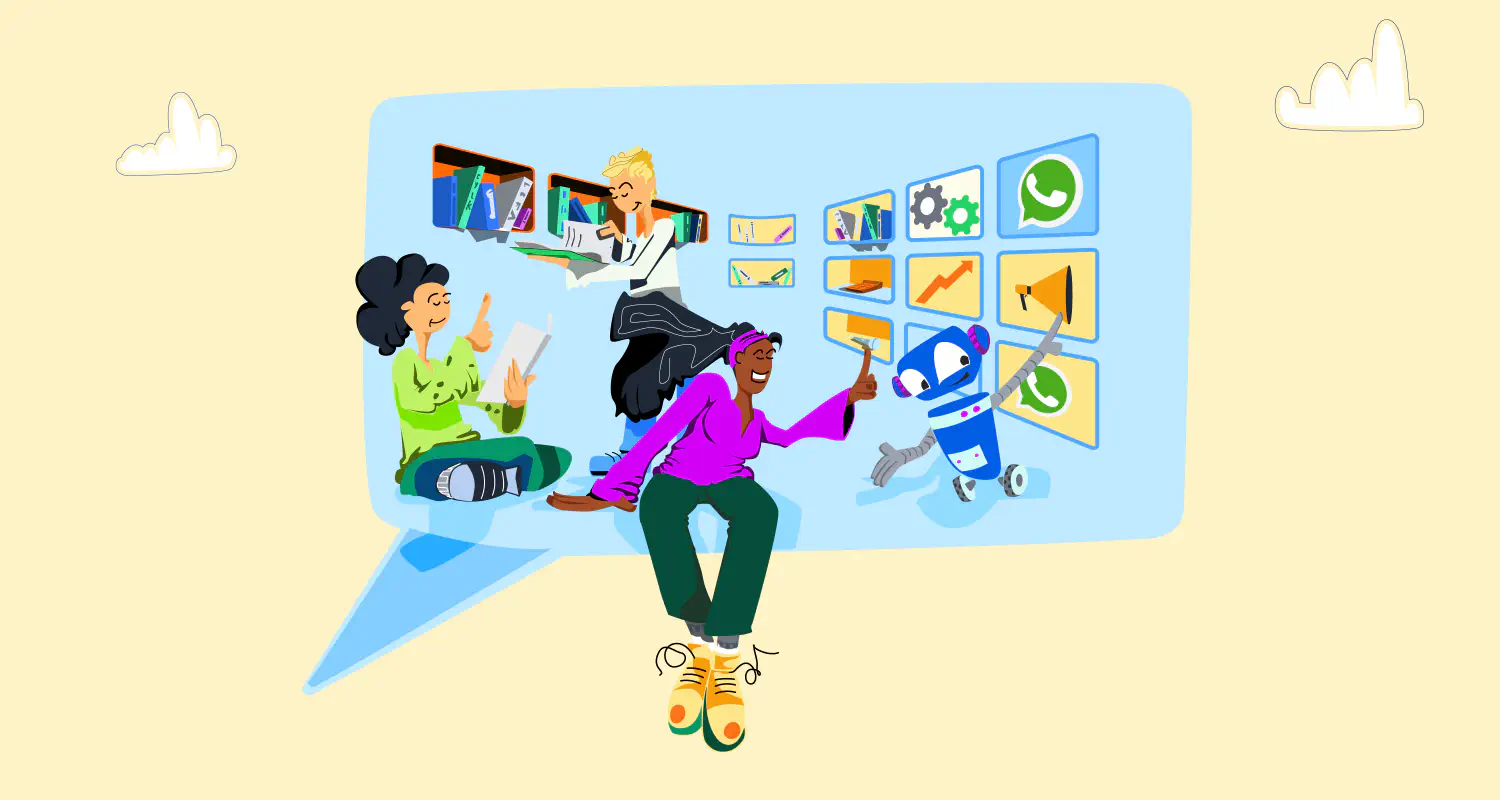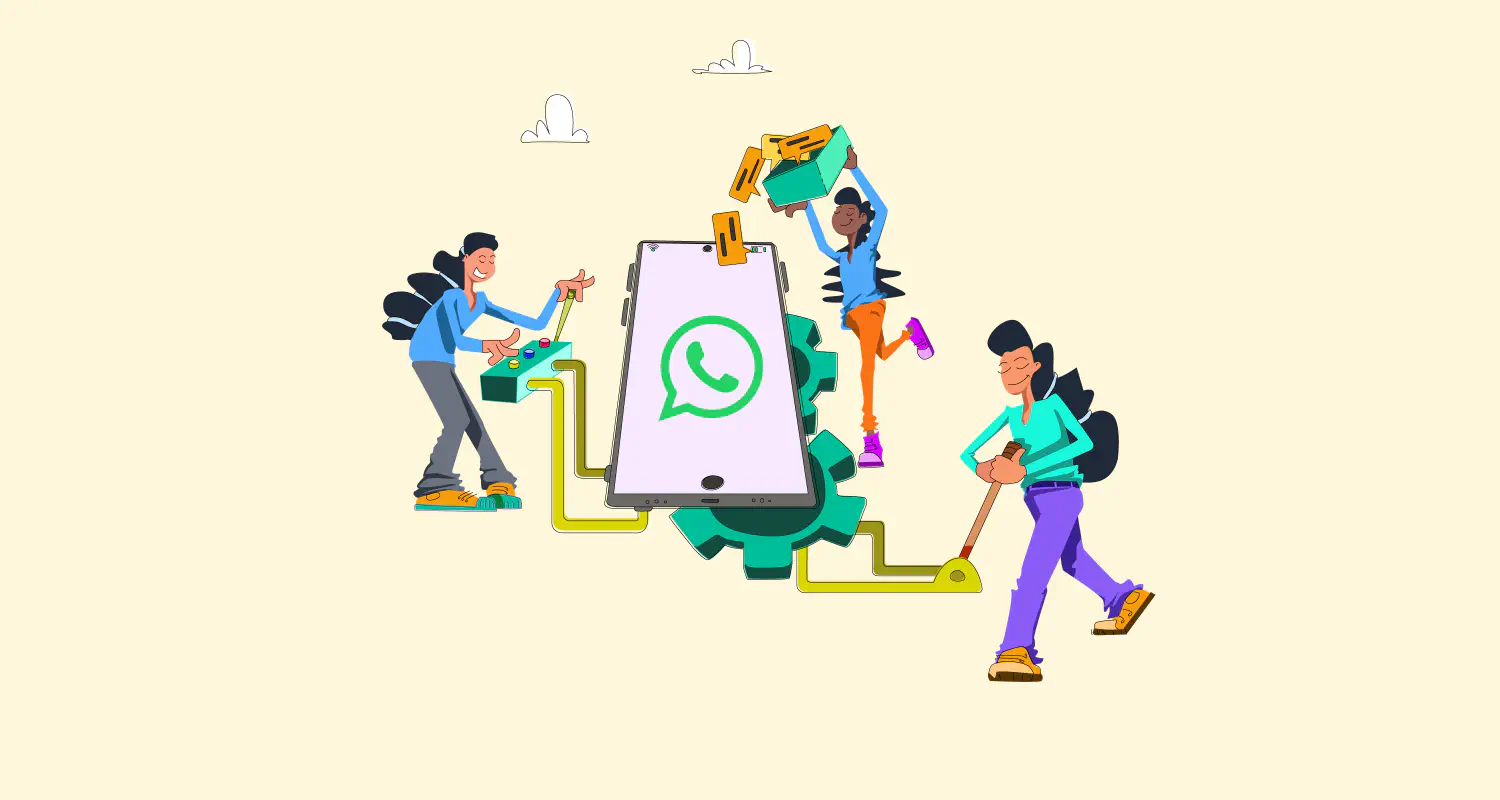5 Ways to Personalize Your WhatsApp Business Experience
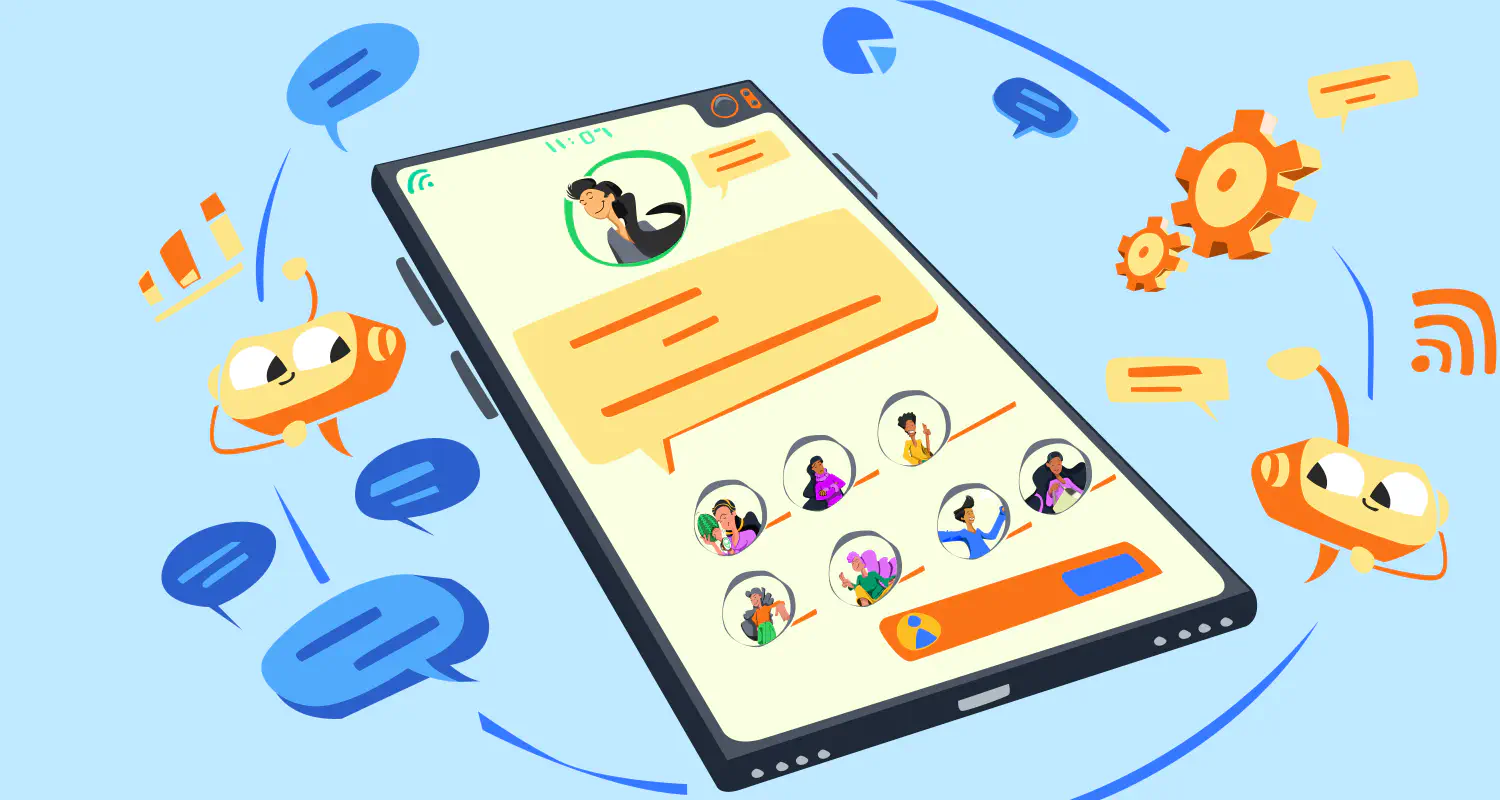
Do your customers feel disconnected when they reach out to your business? You’re not alone! Many B2B companies struggle to close deals over WhatsApp Business because interactions with customers can lack a personal touch. To solve this, sometimes companies turn to third-party extensions, but these workarounds often violate Meta’s policies, risking account bans.
If you’re on the API and facing similar challenges in building customer relationships, don’t worry! In this article, we’ll discuss creative ways you can use to deliver a unique customer experience without breaking WhatsApp’s rules or compromising on efficiency.
But first, let’s talk about the limitations of the WhatsApp Business Platform when it comes to supporting personalized interactions with customers.
WhatsApp Business API limitations on personalization
Here is a breakdown of some limitations of the WhatsApp Business Platform that impact customer interactions and why they can make a conversation feel less human.
Multiple numbers and company accounts
Imagine you’re troubleshooting an app issue, so you reach out to customer success on WhatsApp. On the other end, all you see is the company logo - no name, no face, just a response. You explain the problem, and a team member tries to help.
The next day, you encounter a new issue related to the previous one. You reach out again, but this time, you’re left wondering if you’re even speaking to the same person. Should you go over the issue history or dive straight into the new problem?
Using a single, company-wide WhatsApp number instead of personal agent numbers can make conversations feel impersonal. Customers might lose that sense of familiarity, especially if agents change frequently.
Cold first impressions
WhatsApp message templates, though useful for efficiency, can feel cold and impersonal. Customers are often greeted with a generic template that lacks warmth or personalization, and that can make them feel like just another number in the queue.
They may wonder if they’re interacting with a real person, a chatbot, or simply an automated workflow. When the first impression feels robotic, customers can lose interest or trust in the interaction.
How to customize WhatsApp Business conversations
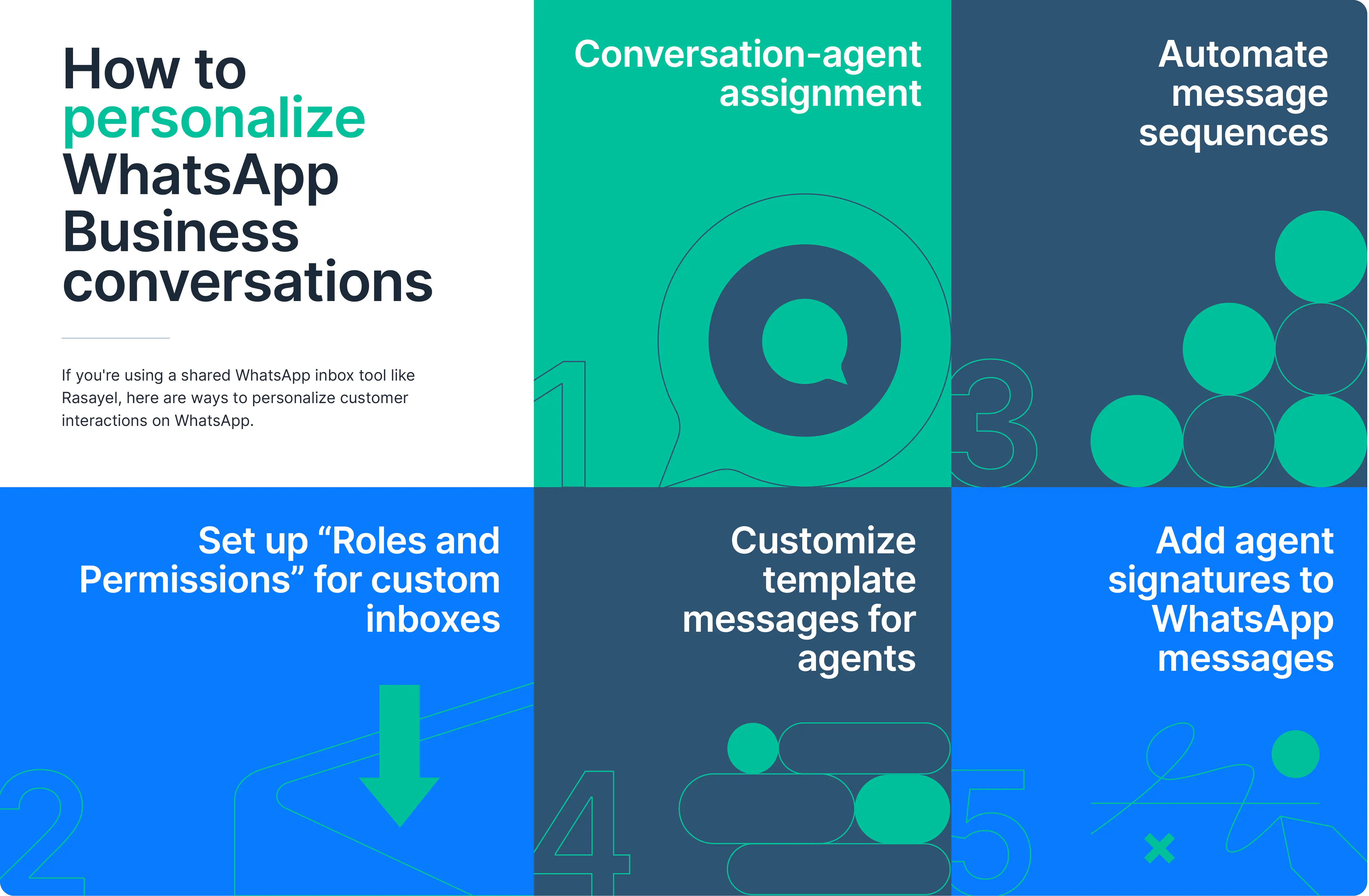
Personalizing customer interactions on WhatsApp doesn’t have to be complicated. If you’re using a Shared WhatsApp inbox tool like Rasayel, here are some techniques you can implement to create a personal experience for customers who message your business on WhatsApp.
1. Conversation-agent assignment
Think about how nice it feels when the customer support agent remembers you or knows your past conversations or issues. If every time a customer reaches out, they get a different person, it can feel a bit like starting from scratch, which is frustrating.
But how can you avoid this?
Whenever possible, assign returning customers to the same agent. You can do this by syncing WA business platform with your CRM, allowing both tools to share data. This way, you can track customer conversations and make sure they get reassigned to a familiar face.
Here is an example of how this can be done if you’re using Hubspot as a CRM:
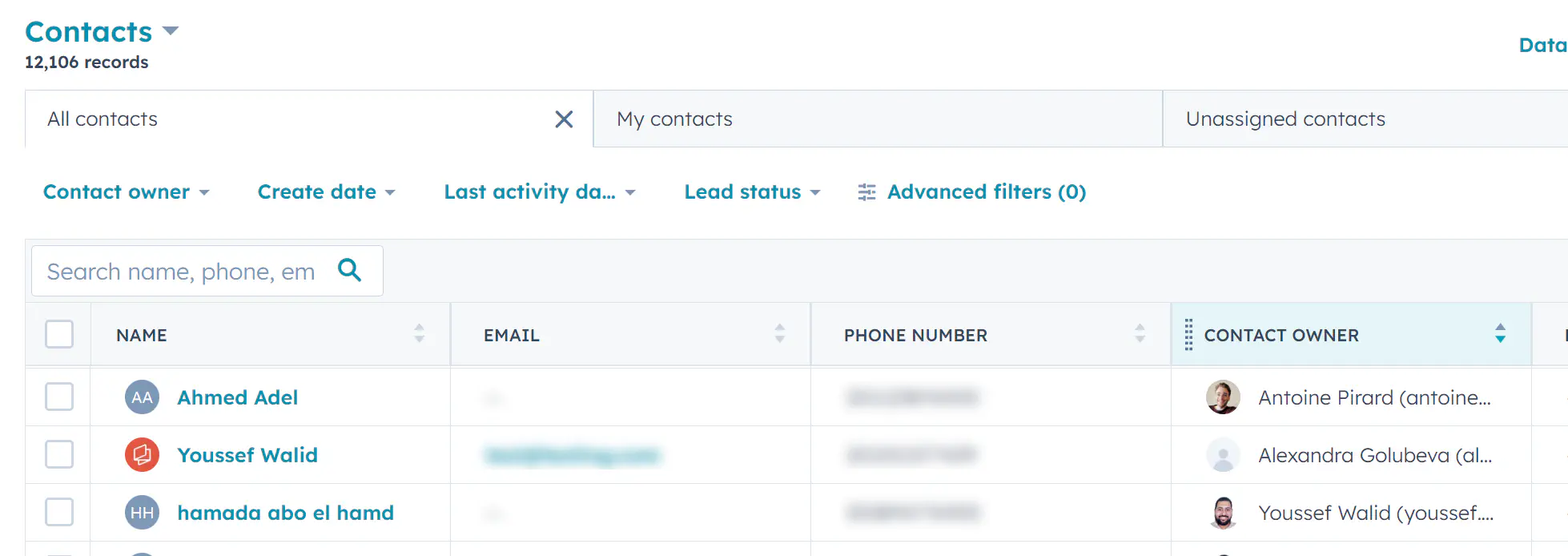
A WhatsApp CRM integration lets you assign conversations based on expertise. If a prospect is already in touch with a sales rep, that SDR can be assigned to future WhatsApp conversations with that prospect.
This provides customers with a consistent and more personalized experience on WhatsApp, where they interact with team members who know their backgrounds, main pain points, and goals.
2. Set up “Roles and Permissions” for custom inboxes
Just like how everyone on your team has different roles, each person should only see the messages that apply to their job. For example, your sales team should focus on new leads, not get bogged down by ongoing support issues.
In your shared WhatsApp inbox, set up user permissions to create custom views for each team member. This makes it easier for each person to give their full attention to the right chats.
Here’s how we set up roles and permissions for our sales team at Rasayel:
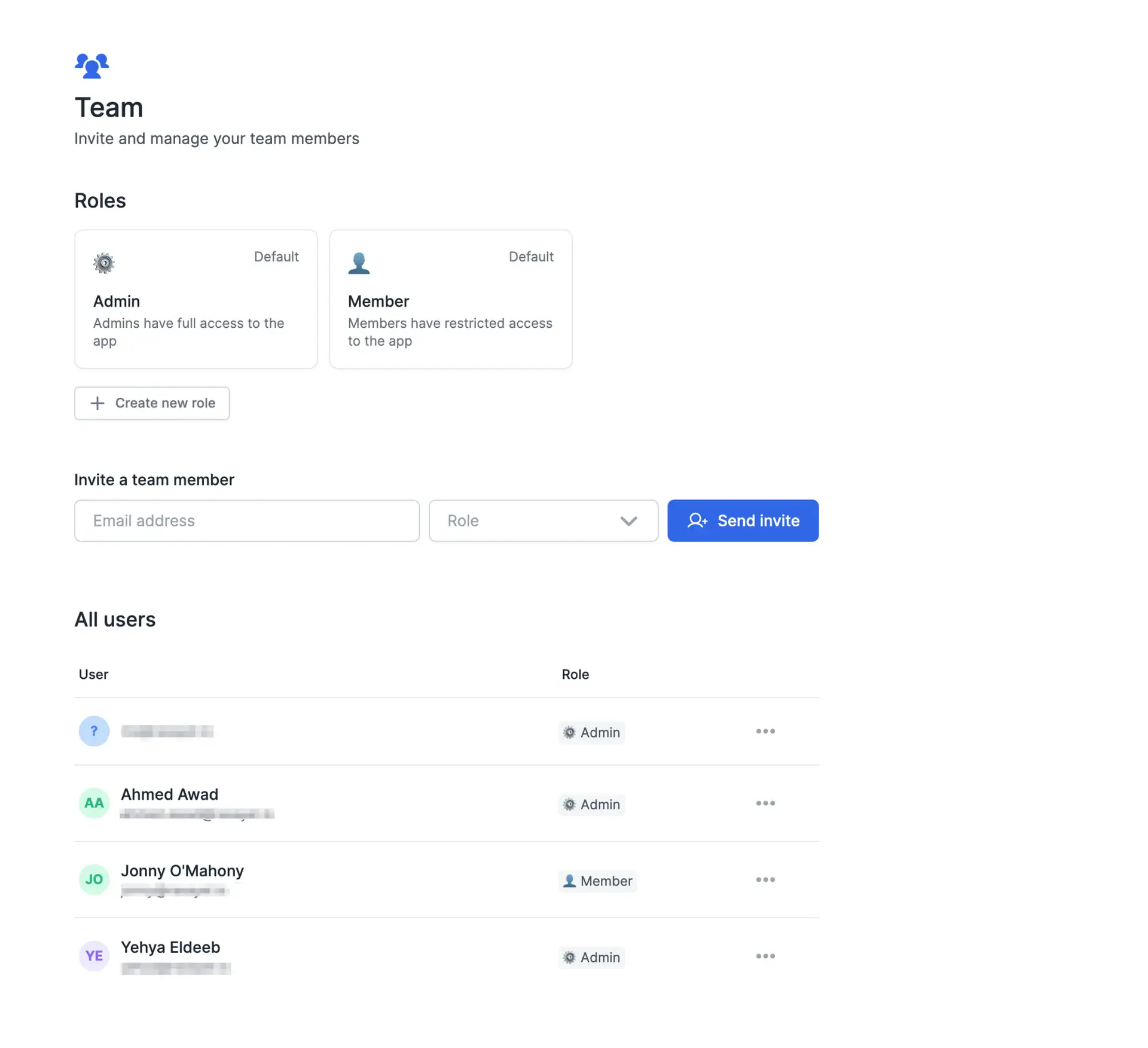
3. Customize template messages for agents
People want to feel like they’re talking to a human and not a business. When a message feels personal, it creates a connection with customers right away and they’re more open to being sold a product.
One great and creative way to do that is by personalizing your agent interactions with customized WhatsApp templates. These templates can include the agent’s photo, contact details, and a demo or call booking link, such as Calendly.
Support and sales agents can use these templates to introduce themselves to new customers and leads and create a more human connection. Here is how Ashraf from our sales team does this at Rasayel:
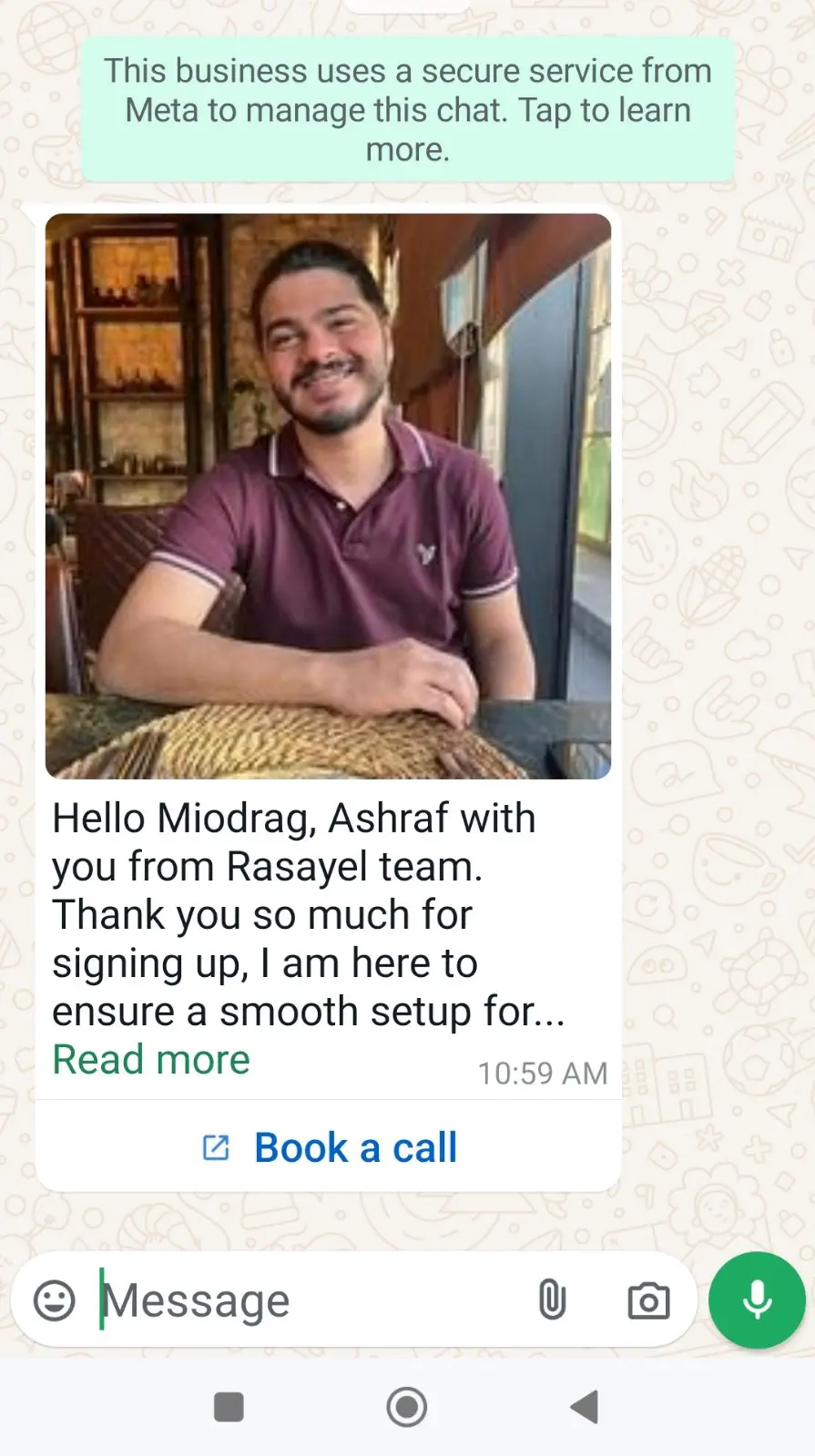
4. Automate message sequences
Customers appreciate when they aren’t left waiting for a response, but it can be hard to remember to respond back manually every time. If you automate sales follow-ups, you can keep the conversation going without any manual work. And if done right, it feels very personal.
You can create an automated workflow in your CRM, triggered by a specific event. Once the criteria are matched and the workflow is triggered, it can assign the conversation to a specific agent and send a series of WhatsApp templates with delays between them.
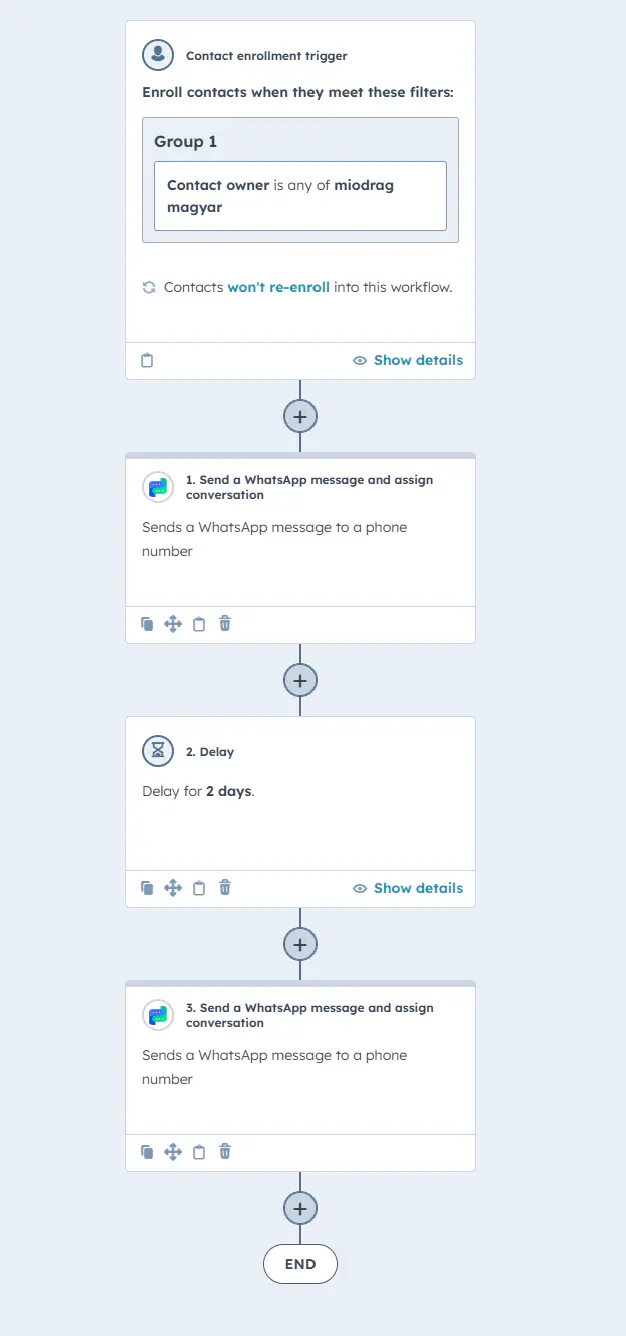
In Rasayel, Sequences do a similar thing without needing CRM integration. Agents can create their personal message sequences triggered by specific actions and add delays between messages to create a smooth, natural flow of communication.
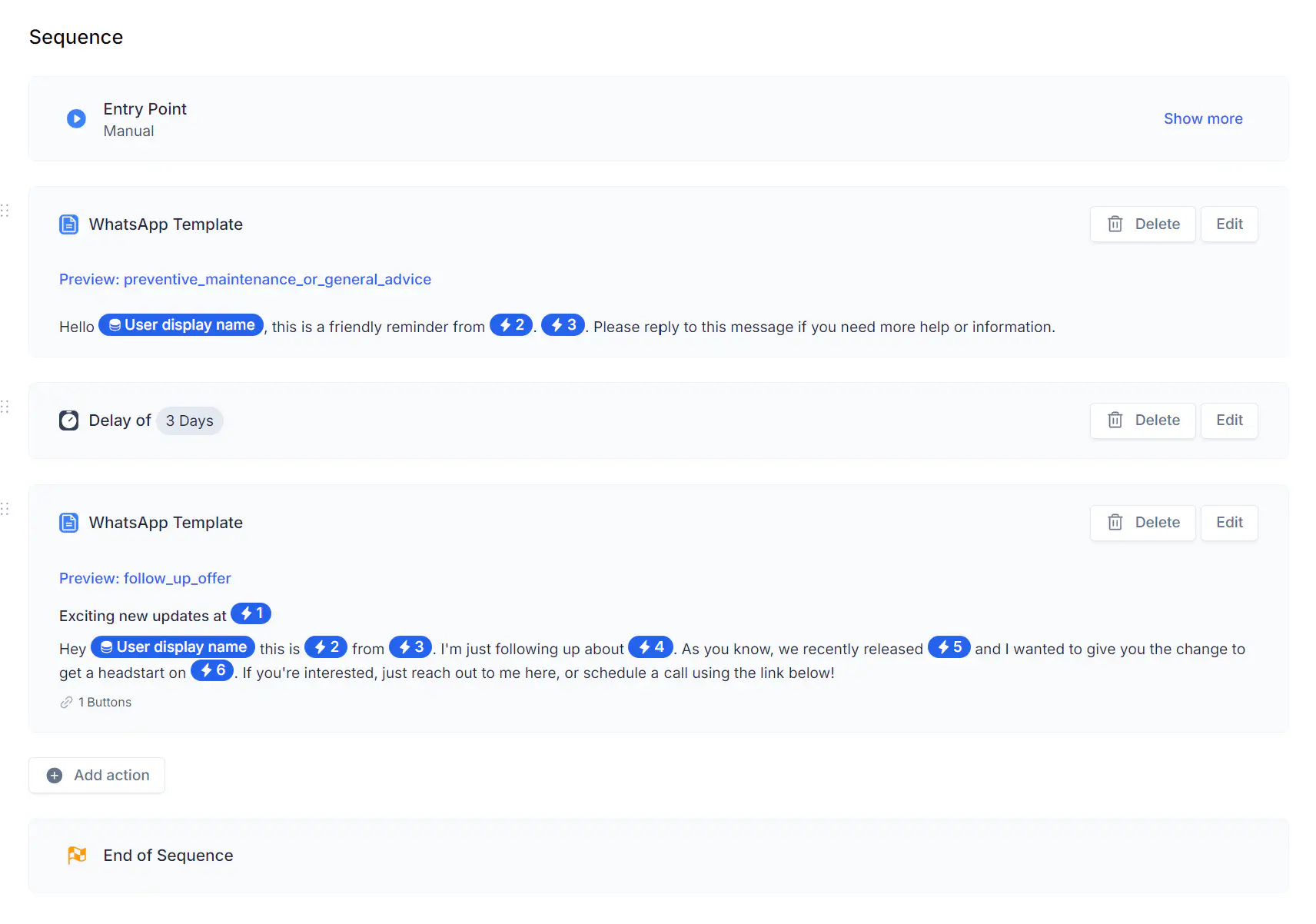
5. Add agent signatures to WhatsApp messages
Just like in emails, adding a signature to the end of a WhatsApp message can make it feel more personal and professional. It tells customers that they’re talking to a real person and makes it easy for them to know who to reach out to or ask for in the future.
A simple signature in the first message of each new WhatsApp conversation or after a long pause in communication helps your customers know exactly who they’re speaking with.
You probably already know how to automate an email signature and doing it on WhatsApp is that much easier. Here’s how you can sign a WhatsApp message in Rasayel’s composer in just 1 click:

Key takeaways
Though the WhatsApp Business Platform has some limitations for personalization, there are so many creative ways companies like yours can implement to keep customer interactions feeling personal.
Here is what we do at Rasayel to make sure we build better connections with customers:
- Use conversation-agent assignments for consistent, familiar interactions.
- Use users and permissions to create dedicated, private inboxes for each role.
- Personalize message templates with agent details, such as names and contact links.
- Set up automated sequences that keep responses tied to a specific SDR.
- Personalize initial messages with an agent’s signature.
With these techniques, you can find the right balance between scale, compliance, and personalization. It will help you build and maintain strong customer relationships on WhatsApp Business Platform.
Frequently Asked Questions

Miodrag is a seasoned WhatsApp marketing expert with over 15 years of experience in B2B sales and communication. Specializing in the use of WhatsApp Business API, he helps businesses use WhatsApp’s marketing features to grow their sales and improve customer engagement. As one of the early adopters of WhatsApp Business, Miodrag has a deep understanding of its tools and strategies, making him a trusted authority in the field. His insights have helped many businesses with their communication strategies to achieve measurable results.

